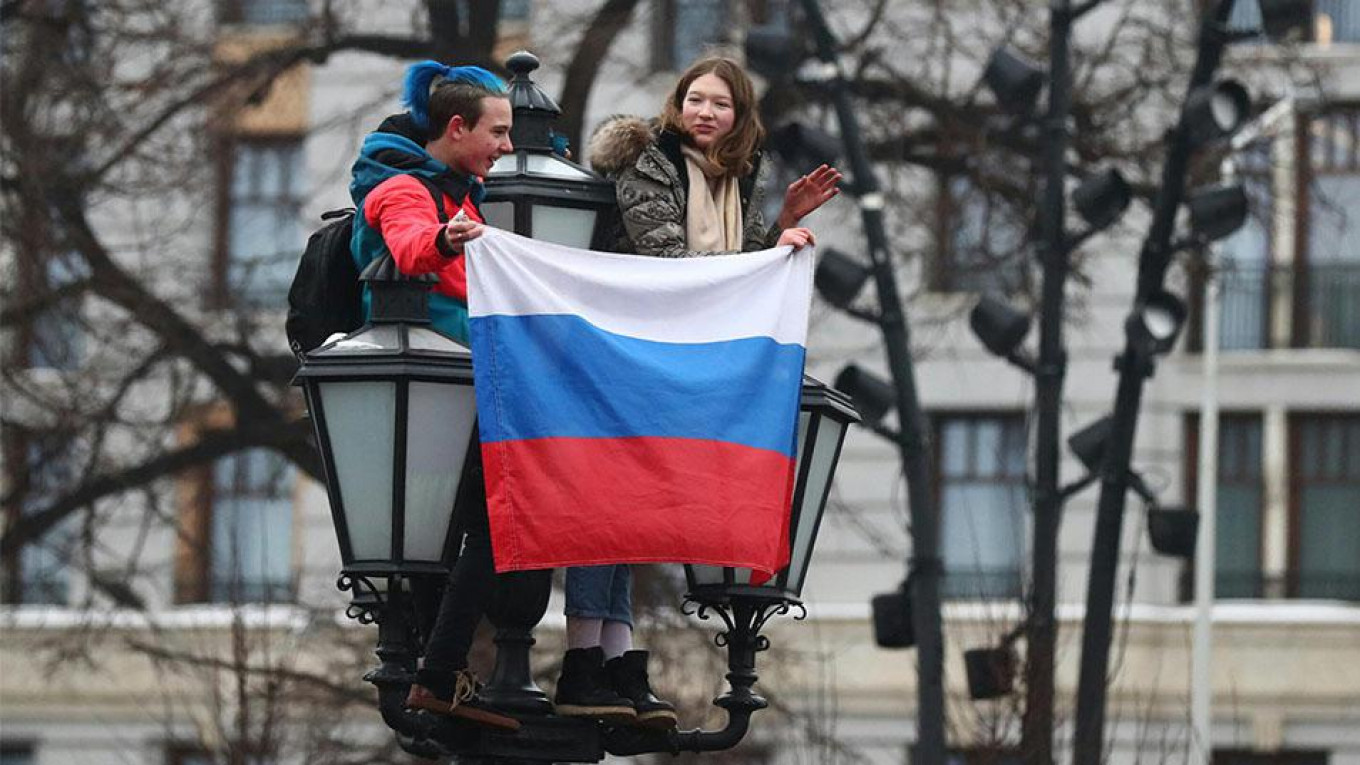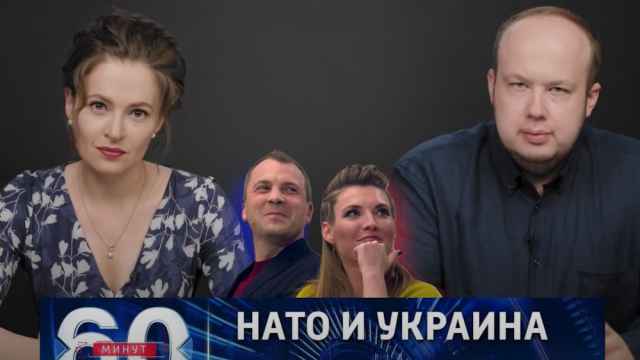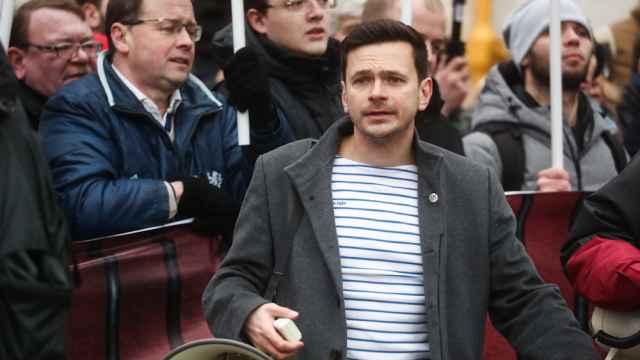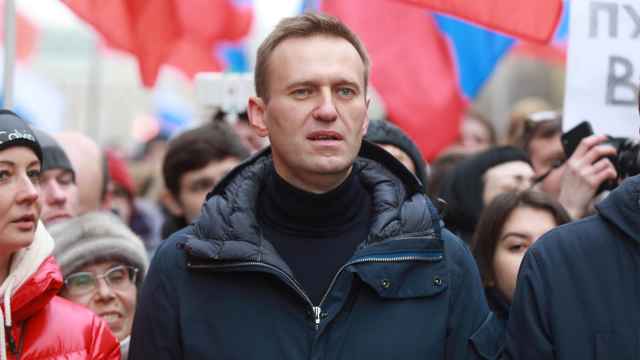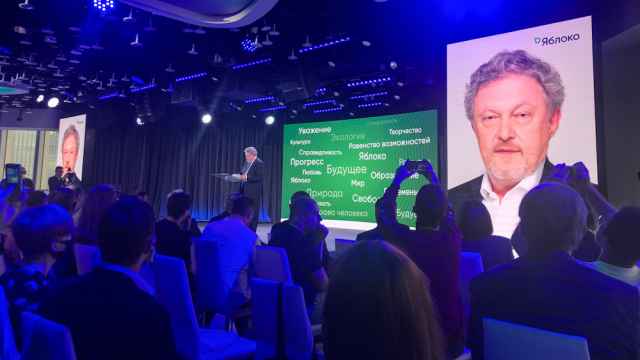By the time the protests reached Moscow on Sunday afternoon, thousands of Russians across the country had already marched in support of boycotting presidential elections in March.
They marched in Vladivostok, in Russia’s Far East, and they marched in Siberia’s Irkutsk, braving subzero temperatures. They marched for fair and free elections, they said, and for an end to President Vladimir Putin’s nearly two-decade-long rule. Should he win the vote on March 18 — as is widely expected — it would extend his presidency for another six years.
In dozens of cities across the country — more than 100, according to opposition politician Alexei Navalny’s campaign team — Russians took to the streets in support of Navalny’s call for what he has termed a “voters’ strike.” Navalny called for the boycott earlier in January after being barred from registering as a candidate due to a prior criminal conviction his supporters see as a political ploy.
The largest protests of the day were expected in Moscow. Around 1:30 p.m., protestors of all ages began filing into Pushkinskaya Square in the city’s center, at walking distance from the Kremlin.
From the outset, the energy was palpable. Earlier, police had broken into the offices of Navalny’s Anti-Corruption Foundation using an electric saw to cut through the doors.
After protesters were detained en masse at a series of Navalny-led protests against rampant corruption last year, many were prepared for the worst.
“I am prepared to be shot if it comes to that,” said Sergei Ivanchenko, a 27-year-old who works for a workers’ rights organizations. “I understand the possible consequences.”
With the country held under Putin’s tight grip for so long, Ivanchenko said, Russia has no future. And while he did not believe the protests would amount to much — the latest polls show Putin with 66 percent of the vote, far ahead of his rivals — he still felt that Russians deserved to have a voice.
“Governments only work for the people if they are held accountable,” he said.
Like Ivanchenko, most of the protesters who spoke to The Moscow Times did not believe anything would change as a result of the voter’s boycott. But unlike him, many did not disclose their names for fear of retribution. Indeed, prior to the Jan. 28 protests, reports had circulated in Russian media of people who had lost their jobs due to their support of Navalny.
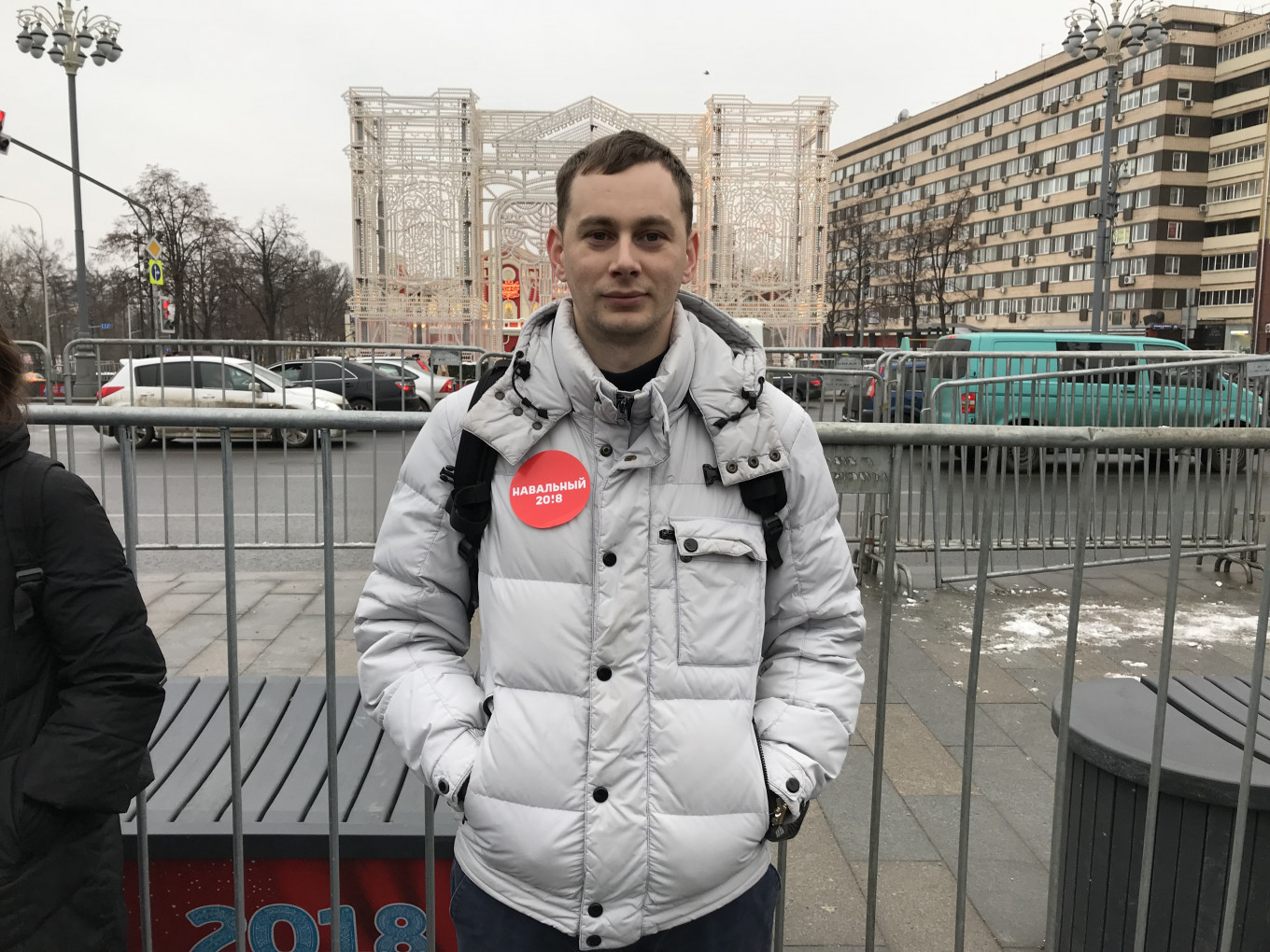
Three teenagers — all of whom declined to give their last names — said that, above all, it is time for someone new to lead the country. If someone other than Navalny was speaking out similarly, they would support him or her too, they said.
“Putin has been president for longer than we’ve been alive,” said Nastia, 15. “It’s time for a change.” Another 15 year old had “money” and “power” written in marker on each of his cheeks. “It’s all that Putin wants,” he explained.
Throughout the day, there was a heavy police presence around Pushkinskaya Square but there were no clashes. According to OVD-Info, a police monitoring organization, 371 people were detained in the nationwide demonstrations — a much lower number than at prior rallies, perhaps because of a smaller turnout.
Navalny himself was forcefully detained within minutes of appearing on Tverskaya Ulitsa, before he had a chance to join the protesters on the square. Still, he reappeared online soon after, urging his supporters to keep the protest going.
“Come to Tverskaya,” he wrote on Twitter. “You’re not coming out for me, but for yourselves and your future.”
And they kept coming. By 2:30 p.m., the square had overflowed into the streets, slowing traffic, with hundreds of people on the scene. But other than a singular voice droning over and over into a megaphone calling on protesters to disperse, police stood by watching calmly.
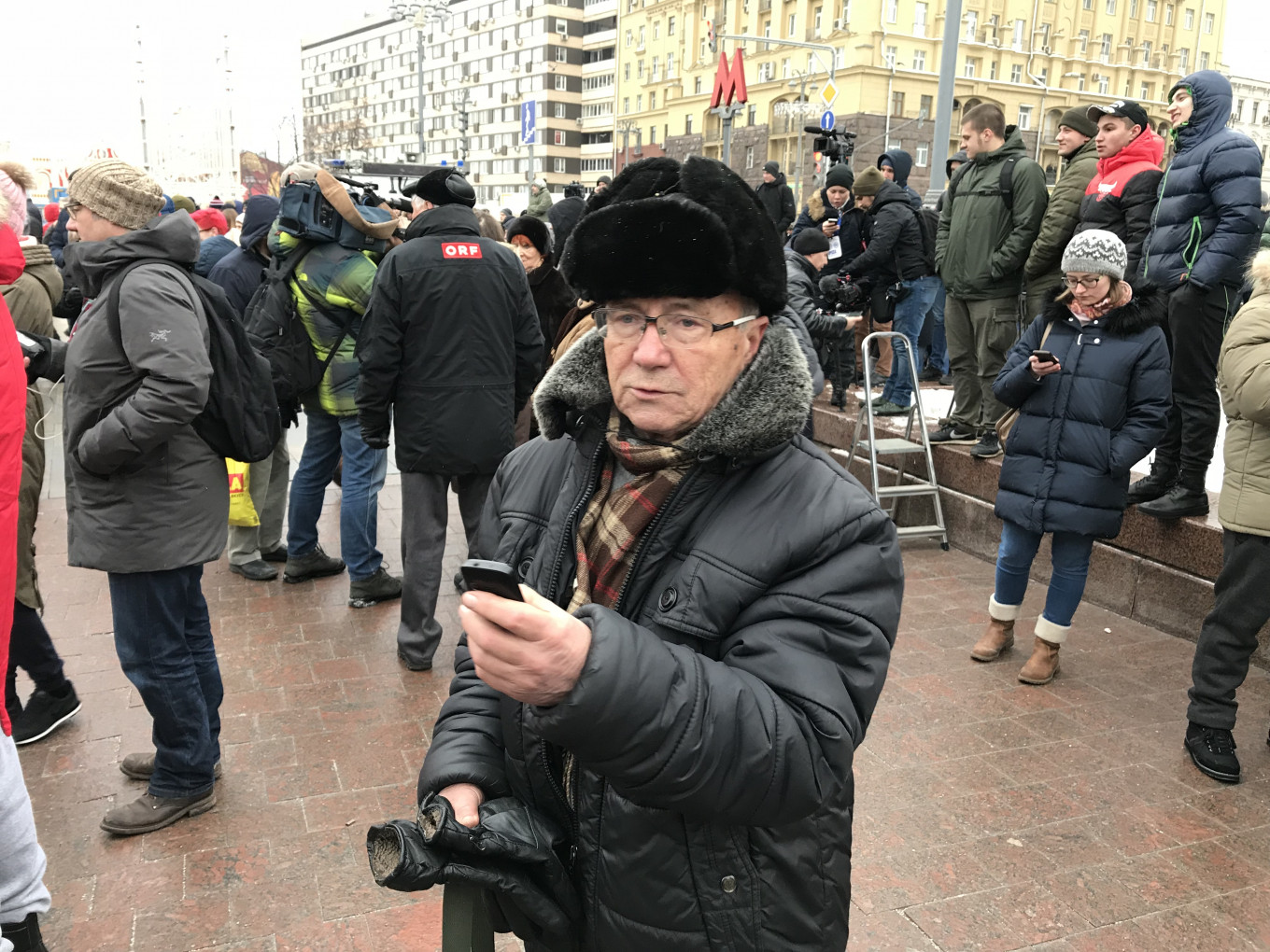
Protesters repeatedly chanted “Putin is a thief” and “Russia without Putin.” Young people climbed lamp posts and waved Russian flags as they led the chants. Mostly, they were young people — but adults of all ages came out to the square. Some simply to take the pulse of the crowd for themselves.
“If the people want someone other than Putin, then that’s how it should be,” said Alexander Pavlovich, a 79-year-old pensioner who said he had come to see what all the fuss was about. “The government should not exclude the man the people want from the elections.”
Later, around 3:30 p.m., a group of young people began chanting “to the Kremlin,” and led a mass of protesters south down Tverskaya. Along the way, they chanted, “The power is with us.” At the end of Tverskaya, however — where the street runs into Red Square — police demonstrated otherwise, blockading the protesters from advancing further.
With their path blocked, the majority of protesters began to disperse. Those who remained, however, were in for a final flourish: Vladimir Zhirinovsky, the rabble-rousing head of the Liberal Democratic Party, pulled up in a black limousine on Tverskaya, and got out to speak with a group of protesters.
But to the man who has run for president in the past five elections, Navalny’s supporters shouted, as they had to Putin earlier, “Leave!”
A Message from The Moscow Times:
Dear readers,
We are facing unprecedented challenges. Russia's Prosecutor General's Office has designated The Moscow Times as an "undesirable" organization, criminalizing our work and putting our staff at risk of prosecution. This follows our earlier unjust labeling as a "foreign agent."
These actions are direct attempts to silence independent journalism in Russia. The authorities claim our work "discredits the decisions of the Russian leadership." We see things differently: we strive to provide accurate, unbiased reporting on Russia.
We, the journalists of The Moscow Times, refuse to be silenced. But to continue our work, we need your help.
Your support, no matter how small, makes a world of difference. If you can, please support us monthly starting from just $2. It's quick to set up, and every contribution makes a significant impact.
By supporting The Moscow Times, you're defending open, independent journalism in the face of repression. Thank you for standing with us.
Remind me later.



